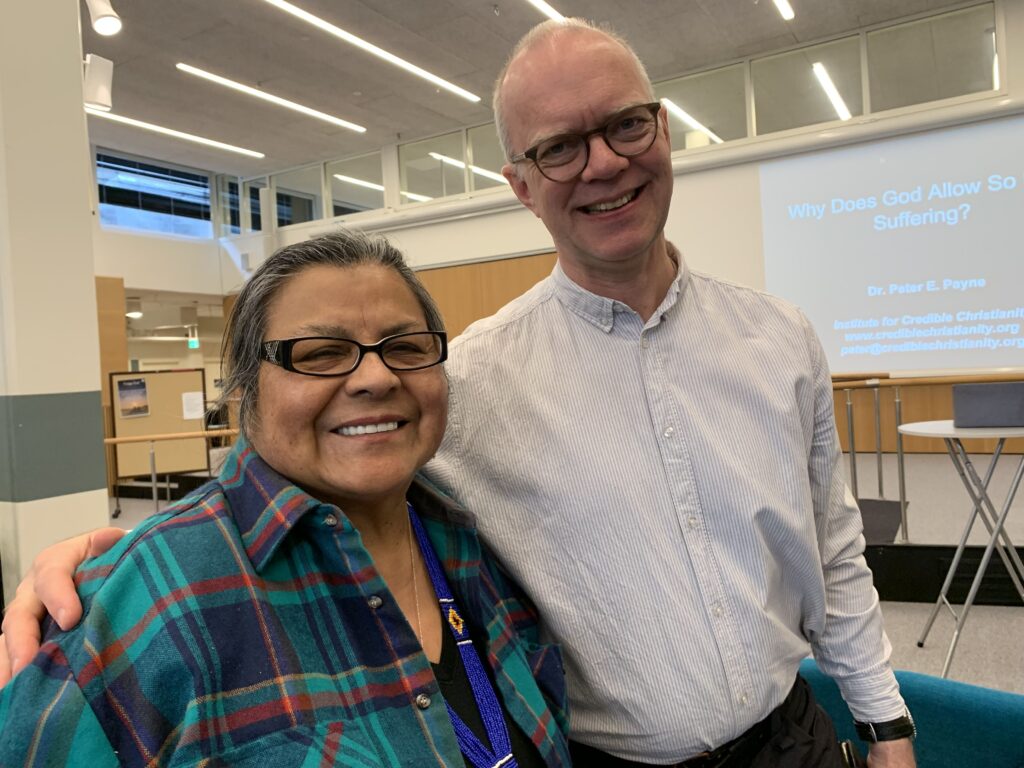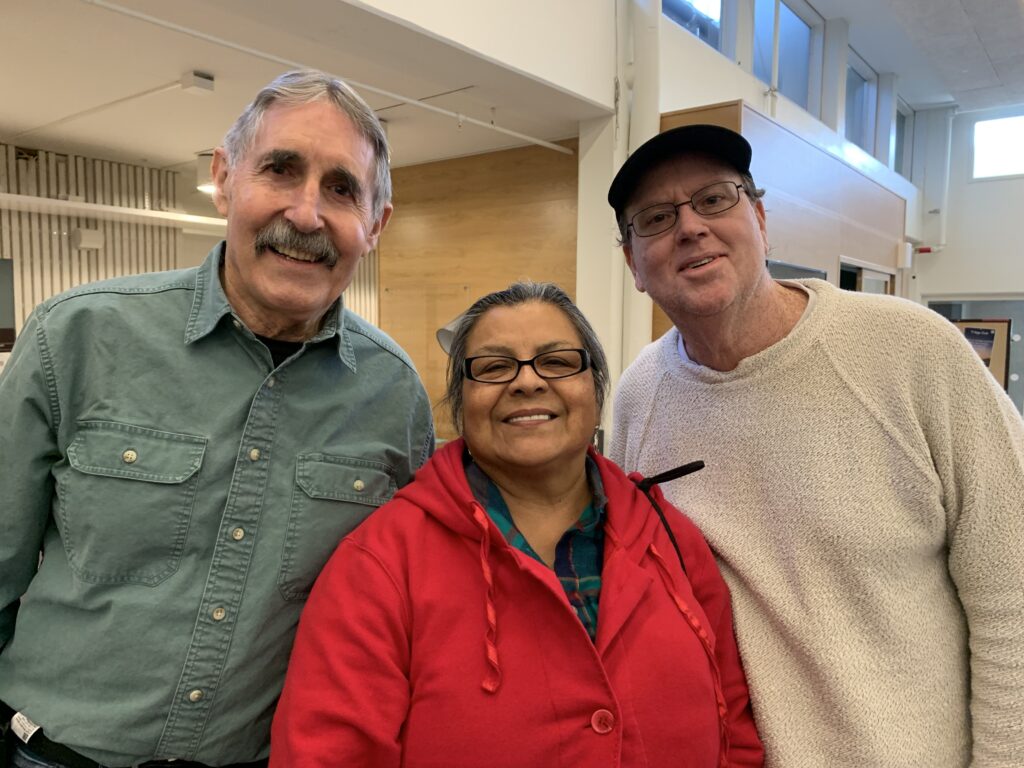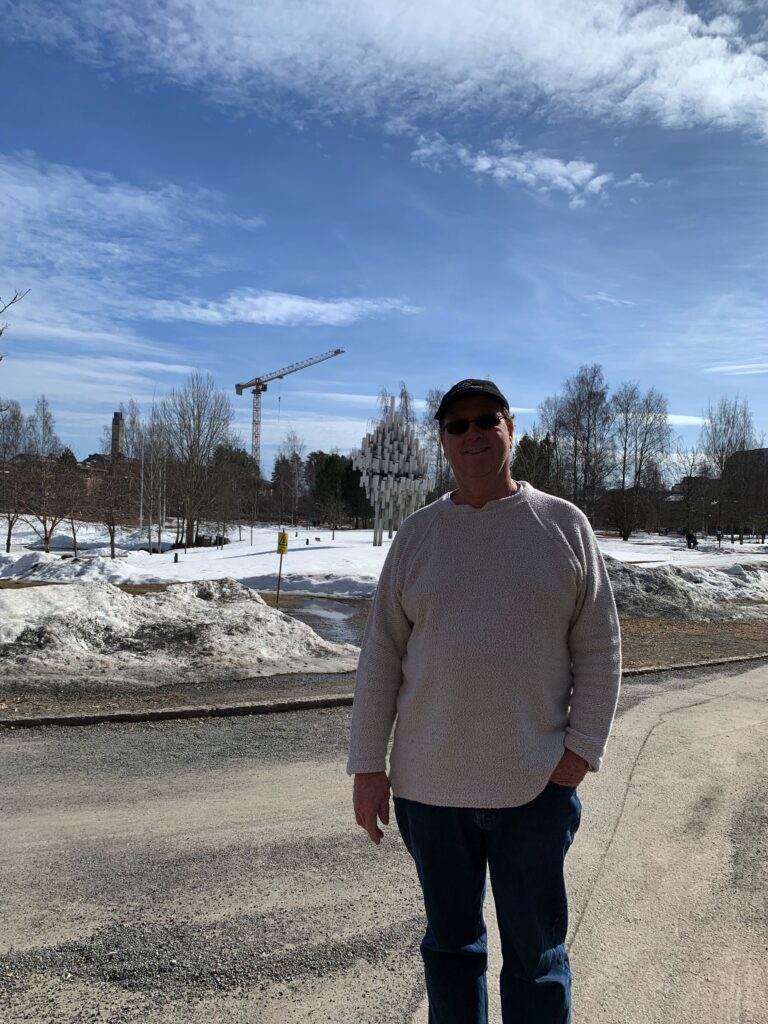


Even though it was mid April, there was plenty of snow. We took a bus to the University to hear a lecture by Dr. Peter Payne(middle picture) from the USA. We walked from the bus stop to the Humanities building and purchased our lunch then got ready for the lecture. We met our granddaughter who belongs to the christian student group at the university, coordinated by pastor Jesper(seen in the picture on the left). One of the things we learned that afternoon was the type of approach Dr. Payne made on the subject of “Why God allows suffering”. Our interest was to see what kind of questions the students were going to ask. To our surprise, Peter approached them not with an attitude of conflict but to encourage them to question the subject matter. It was an intellectual presentation and one of the questions asked was how can I talk to someone about the existence of hell.
Dr. Payne talked about freedom of will and the consequences of our decisions. This lecture was during lunch for anyone who wanted to listen. We were then invited to dinner and a second presentation by Dr.Payne that night at The Cross Church in downtown Umea.

We took the bus and arrived at the church where we met our granddaughter and were warmly received by the college students. They had tables set up for about 30 to 40 people. We then had dinner with the group. We had hot lentil soup with some toppings we haven’t had before, bread and water with red berries. The dinner was delicious. After dinner Dr. Payne discussed the subject of “Somethingism”. Both presentations were done in english, since the people in Sweden speak Swedish and English fluently. His perspective was that everyone believes in something. He presented some data that he has researched throughout Europe while visiting Universities that shows the declining % of people: A few decades ago the majority believed in God, then a few years later the majority believed in some kind of deity and more recent the majority claim that they don’t believe in anything. He said that when we speak to a non-christian we need to find out in what they believe in. Then it’s good to not judge them for what they believe, but rather ask them if what they believe in is making their life better or worse.
He said that we are to forgive those that hurt us but they still will receive the consequences of their actions. He asked each table to discuss what they understood about what he was talking about and then give him feedback. He then proceeded to answer each question or concern from each table.
